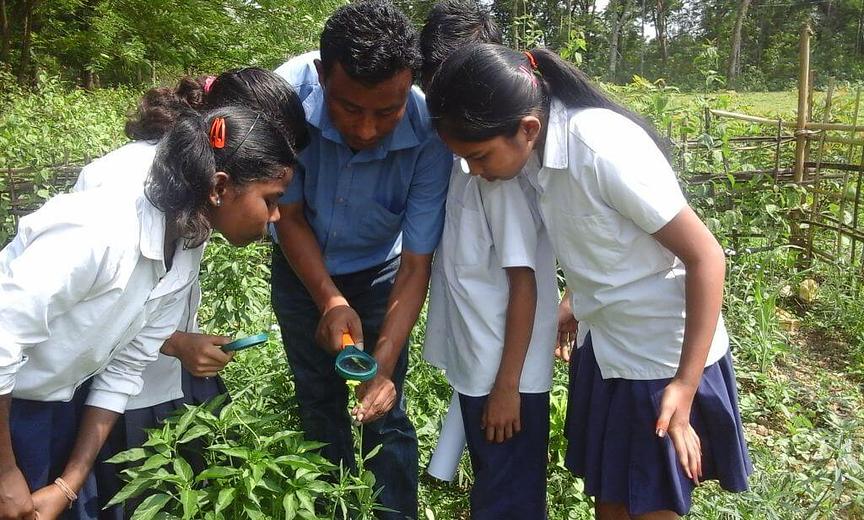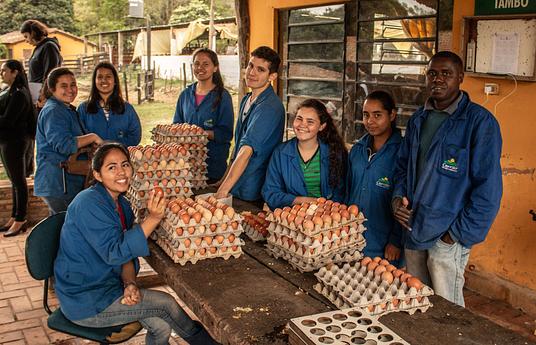Learning outcomes of students in rural school are extremely poor. Due to poor infrastructures, inefficient pedagogy and inadequate nutrition leading to poor health, student are not able to perform well in schools. This is one of the reason for the high dropout rates among student. Out of 1.4 million schools India has 1.2 million schools located in rural areas catering to children from rural areas.
Our Farmpreneur curriculum has 3 strands that are interwoven together in 15 chapters based on Agroecology principles.
a) Nutrition; Young people are encouraged to grow their own food by setting up a School Nutrition Garden. The experiential nutrition curriculum helps them build their understanding of nutrition. The experience helps students to adopt more local leafy vegetables and fruits into their diets.
b) Science and Mathematics education; School Nutrition Garden activities have been mapped with the science and mathematics syllabus of the state board. Through Activity-Based Learning approach, the garden becomes an open science and mathematics laboratory.
c) Entrepreneurship education; students get a first hand experience of live projects based on agriculture using local resources.
We have been working with the State Government schools in rural areas. It has improved diet behaviours, brought back local vegetables, and enhanced the academic performances of students.
We have worked with more than 900 schools in India.
More than 60% of participants have improved diet behaviour.
More than 50% of participants have performed better in their academic subjects in schools.
There has been increased classroom participation of students due to innovative methods of teaching subjects like science and mathematics.
Increased participation of guardians in school affairs.
In 2019, Ministry of Education, Govt. of India adopted the program for 1.2 million schools.
In the next 3 years, we would like to focus on 2 areas;
a) Inspire and train schools/ CSOs to run the project in their regions
b) we would like to include many more aspect of farming and agroecology into the school space to create more learning platform for children in rural India.
It is very easy to implement the program in any region. We have developed the basic framework for the Farmpreneur project. Anybody can easily contextualise the curriculum with our guidance plus their local community's participation. We can be reached at farm2food@gmail.com or deepjyotisonu@gmail.com.



